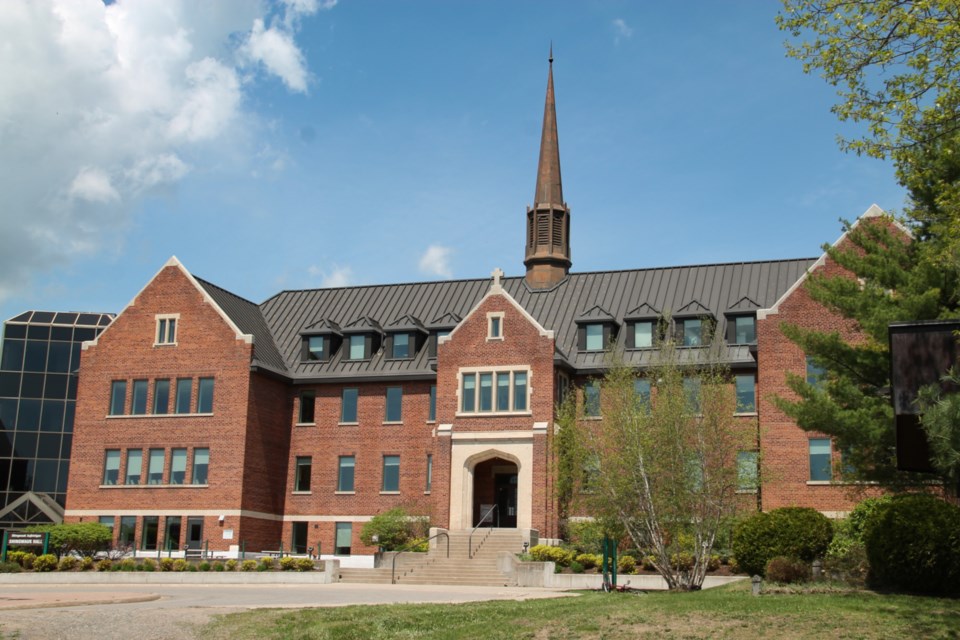Algoma University’s new Minor program in Health, Wellness and Addictions will complement, in an academic sense, the hands-on aspect of that sphere of healthcare practiced by the university’s local and regional healthcare partners.
The Minor in Health, Wellness and Addictions was approved by Algoma’s Senate in January and will be available to students beginning in September, and is seen as the first step in a larger plan to establish an Ontario Mental Health and Addictions Research and Training Institute (OMHARTI).
The proposal for the Institute “notes that Algoma University will leverage existing academic strength in Sociology, Psychology, Health Sciences, Biology and Social Work, and that we will develop various modes of study and training, including certificates, training modules (microcredentials), undergraduate degree specializations and Master’s programs,” wrote Donna Rogers, Algoma University vice-president academic and research in an email to SooToday.
The university is eager to formally establish the Institute in partnership with Sault College, Shingwauk Kinoomaage Gamig (SKG) and the Northern Ontario School of Medicine, as well as service providers such as Sault Area Hospital, Canadian Mental Health Association and Algoma Child and Family Services, Rogers said.
Planning for the Institute is continuing, working with the provincial government.
“Recently, Minister of Finance Peter Bethlenfalvy and Minister of Northern Development, Mines, Natural Resources and Forestry, and Indigenous Affairs Greg Rickford visited the Algoma University campus in Sault Ste. Marie and were briefed on our plans for OMHARTI. A feasibility study will be conducted this fall to determine the business case for the Institute,” Rogers said.
Algoma University students will complete the following Sociology courses in the Minor program in Health, Wellness and Addictions:
- Understanding Society I: Principles and Processes
- Health, Wellness and Addictions, Part One, Public Health
- Sociology of Health, Wellness and Addictions, Part Two, Addictions
- Trauma and Social Resilience
- Wellness through an Indigenous Lens
- Social Theories of Illness and Addictions
“AU’s new minor in Health, Wellness and Addictions is just one programming piece that the university has developed/is developing to support the Institute. It is a complementary program to our existing degree streams in Health Sciences, but appealing to students drawn more to the social sciences and humanities who are interested in working in allied health professions,” Rogers said.
Microcredential courses will also be offered through Algoma University and its partners, Rogers said, to “respond in real-time to the evolving needs of northern communities and service providers.”
The microcredentials, Rogers said, will be available as early as September and include:
- Concurrent Disorders
- Harm Reduction
- Trauma-Informed Practice
- Anishinaabe Land-Based Healing
- Mental Health Act and other Legislation
- Pharmacology in Mental Health and Addictions
- Jordan's Principle (a child-focused initiative that aims to stop service inequities and delays for First Nations children)
- Grief from an Indigenous Lens
Rogers said the university and its partners have done their homework in identifying the need for trained mental health and addictions treatment workers for northern Ontario.
“Algoma University, through our expanding Experiential Learning department…(wants to) respond to identified labour market needs in our region and across the north. This approach ensures an effective response to growing training needs in mental health and substance-use related disorders, and is targeted to professionals working in northern communities who could benefit from flexible and targeted skill development, as well as to those seeking to upskill to reenter the workforce. The proposed microcredentials will address immediate skills gaps and include opportunities for employers to invest in upskilling their employees,” Rogers said.
Mental health and addictions issues have worsened as a result of COVID, increasing the need for trained professionals to help with those issues, she added.
